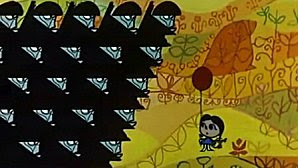"Who else can be heard, resoundingly, in the music of both Prince and Metallica? Funkadelic and Van Halen?" This is how Ben Cosgrove put it in TIMELightbox's tribute to Jimi Hendrix, as yesterday would have been the legendary guitarist's 70th birthday.
It is of course true that even if one has not listened to any of Jimi Hendrix's albums, they probably have heard his music filtered through the practically infinite number of musicians he has influenced. For me, however, the most amazing aspect of Jimi Hendrix is the timeless nature of his work; there have been many influential musicians in the 1950s and the 1960s, but there is hardly anyone whose music sounds today as fresh and contemporary as his.
I was in adolescence when I discovered Hendrix, many years after his death. And to this day, every time someone asks me what type of rock music I like, I begin with a reference to him. The sound of Jimi Hendrix's guitar, heavy as much as sophisticated, rough-edged and simultaneously elegant, is emblematic: not only did it aesthetically manifest the counter-cultural edge of the 1960s, but it also set the terms of reference in what concerns all things defiant and uncompromising in rock music.
And then there is his incredible musicianship; Hendrix's material is of course great in terms of riffs and motifs, rhythms and melodies, but what matters the most is the way he played, rather than what he played. His incredible improvisations made his music unpredictable and unique, as all art that matters happens to be.
All Along the Watchtower, from the 1968 album Electric Ladyland by The Jimi Hendrix Experience, is a case in point, as well as a great favourite of mine. The song was written by Bob Dylan, who replied as follows when he was asked about how he felt when he first heard Hendrix's interpretation:
It overwhelmed me, really. He had such talent, he could find things inside a song and vigorously develop them. He found things that other people wouldn't think of finding in there. He probably improved upon it by the spaces he was using. I took license with the song from his version, actually, and continue to do it to this day.
"There must be some kind of way outta here"
Said the joker to the thief
"There's too much confusion
I can't get no relief
Businessmen, they drink my wine
Plowmen dig my earth
None will level on the line
Nobody of it is worth"
"No reason to get exited"
The thief he kindly spoke
"There are many here among us
Who feel that life is but a joke
But you and I, we've been through that
And this is not our fate
So let us not talk falsely now
The hour's getting late"
All along the watchtower
Princes kept the view
While all the women came and went
Barefoot servants too
Outside in the cold distance
A wildcat did growl
Two riders were aproaching
And the wind began to howl
All along the watchtower









